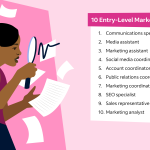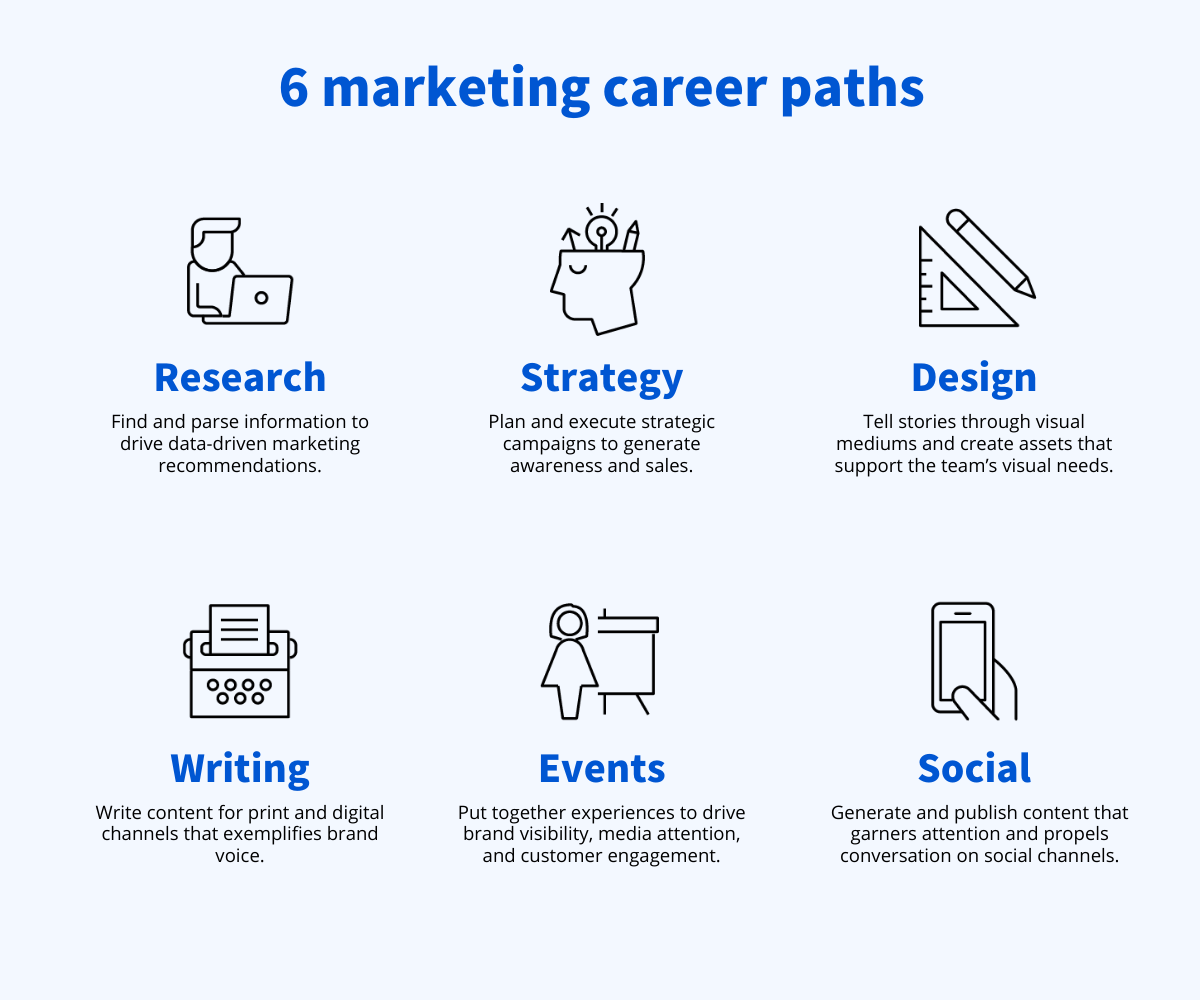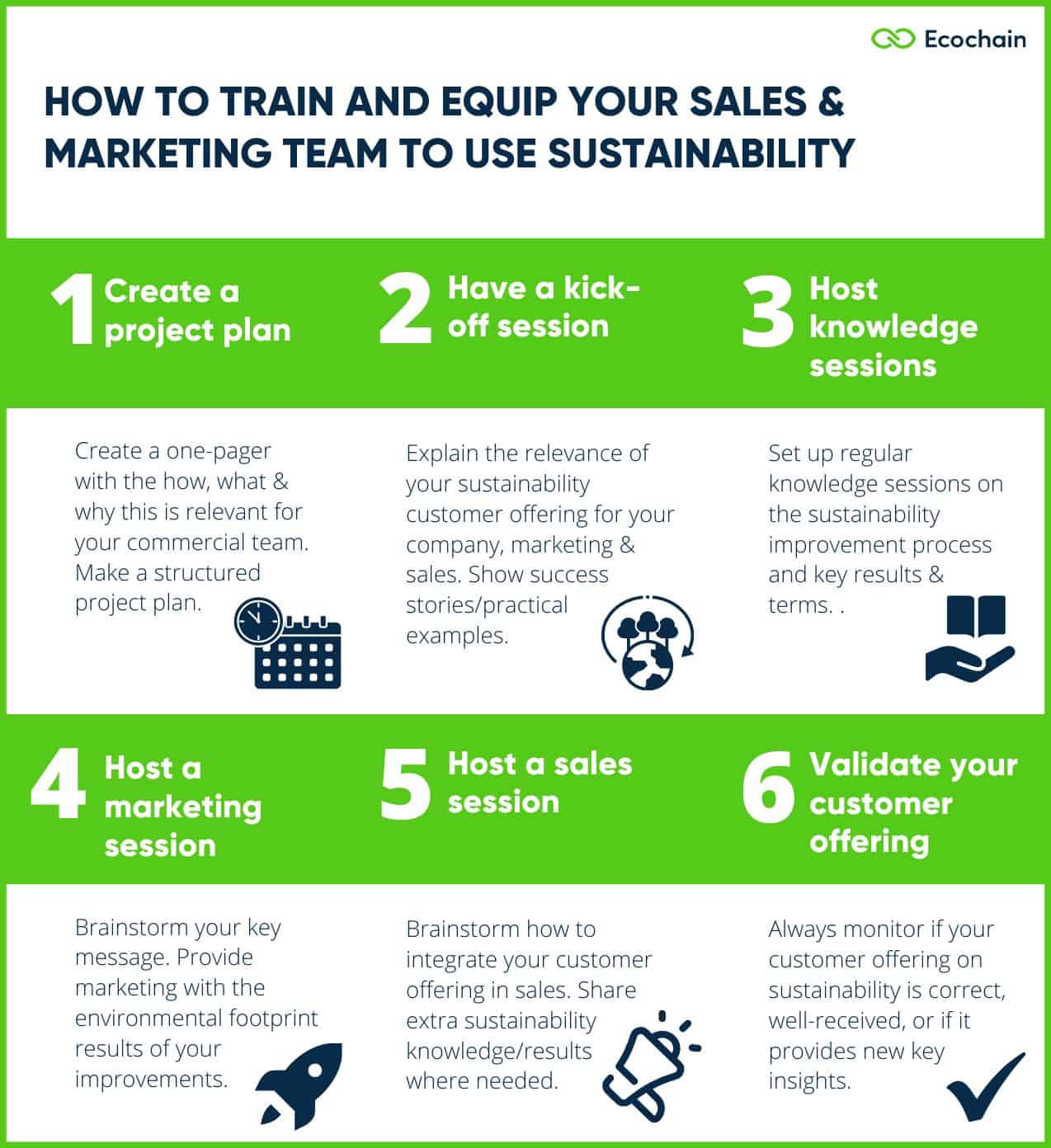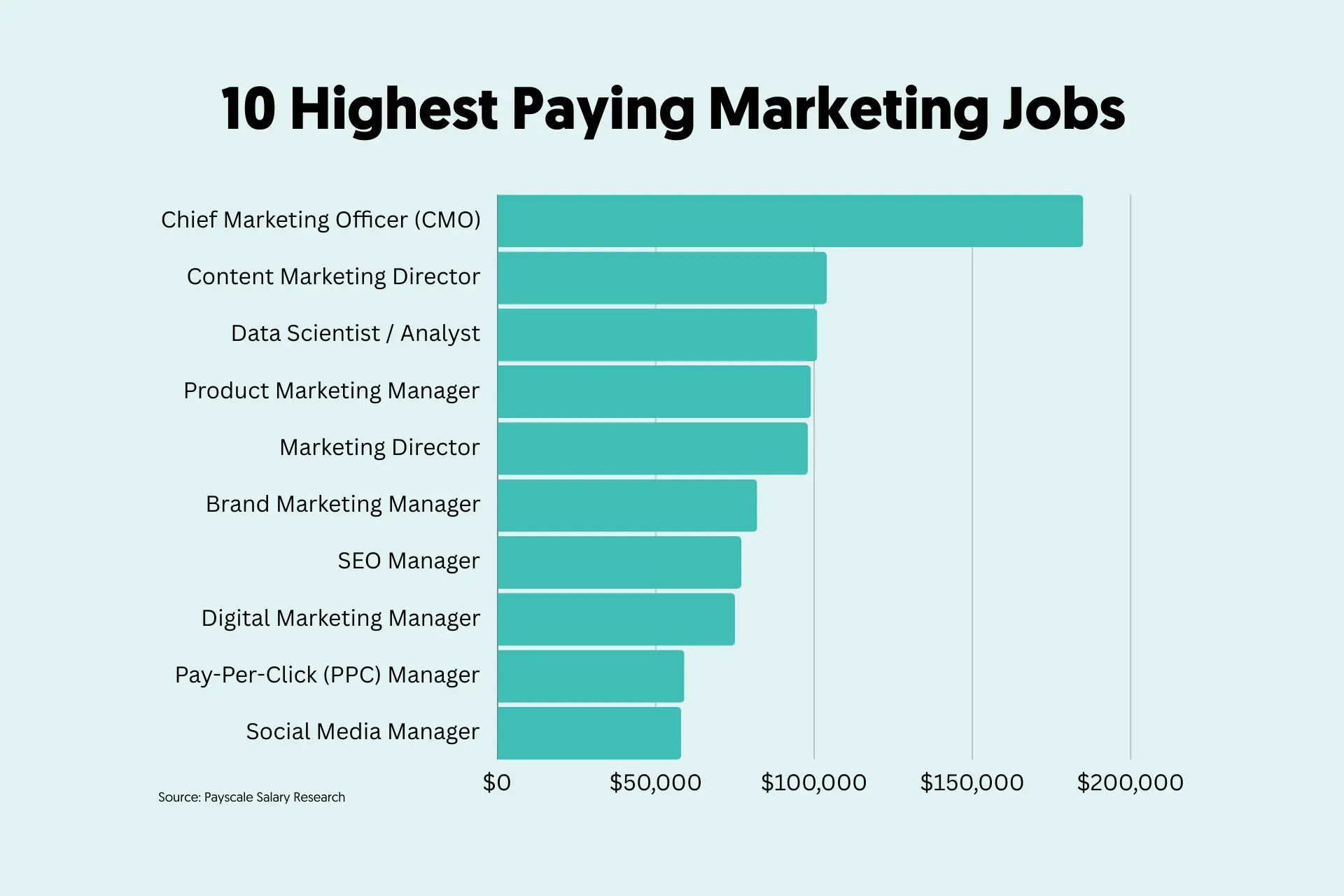In today’s rapidly evolving business landscape, sustainability has become a key consideration not only for environmental practices but also for career choices. Marketing professionals are increasingly seeking career paths that offer long-term stability, growth, and adaptability in the face of technological advancements and shifting consumer behaviors. From digital marketing and content creation to data analytics and brand management, the options are vast. However, not all paths are equally sustainable in the long run. This article explores the most promising marketing career trajectories, examining their resilience to industry changes, demand for skills, and potential for innovation, helping aspiring marketers make informed decisions for a future-proof career.
Which Marketing Career Path is Most Sustainable?
When considering a sustainable marketing career path, it’s essential to evaluate roles that align with long-term industry trends, technological advancements, and evolving consumer behaviors. Sustainability in this context refers not only to environmental concerns but also to career longevity, adaptability, and growth potential. Below, we explore key marketing career paths that are likely to remain relevant and sustainable in the coming years.
See Also How Hard to Break Into Marketing WITHOUT a Degree?
How Hard to Break Into Marketing WITHOUT a Degree?1. Digital Marketing: A Future-Proof Career
Digital marketing is one of the most sustainable career paths due to its adaptability and continuous growth. With businesses increasingly shifting online, professionals skilled in SEO, content marketing, social media management, and data analytics are in high demand. The ability to analyze consumer data and optimize campaigns ensures that digital marketers remain indispensable.
| Skill | Importance |
|---|---|
| SEO | Critical for online visibility |
| Data Analytics | Essential for campaign optimization |
| Content Creation | Drives engagement and brand loyalty |
2. Content Marketing: Building Long-Term Value
Content marketing focuses on creating valuable, relevant, and consistent content to attract and retain a target audience. This career path is sustainable because content remains a cornerstone of marketing strategies. Professionals who excel in storytelling, copywriting, and content strategy will continue to thrive as brands prioritize building trust and authority.
See Also What Is an Entry Level Marketing Job to Start My Career?
What Is an Entry Level Marketing Job to Start My Career?| Skill | Importance |
|---|---|
| Copywriting | Drives conversions and engagement |
| Content Strategy | Ensures alignment with business goals |
| SEO Writing | Enhances content visibility |
3. Data-Driven Marketing: Leveraging Analytics
The rise of big data has made data-driven marketing a highly sustainable career path. Marketers who can interpret data to make informed decisions are invaluable. Skills in data analysis, customer segmentation, and predictive modeling are critical for optimizing campaigns and improving ROI.
| Skill | Importance |
|---|---|
| Data Analysis | Key to understanding consumer behavior |
| Predictive Modeling | Helps forecast trends and outcomes |
| Customer Segmentation | Enables personalized marketing |
4. Sustainability Marketing: Aligning with Consumer Values
As consumers become more environmentally conscious, sustainability marketing has emerged as a growing field. Professionals in this area focus on promoting eco-friendly products and practices. This career path is sustainable because it aligns with global trends toward environmental responsibility and ethical consumption.
See Also Is It Worth Looking at a Masters in Marketing Now?
Is It Worth Looking at a Masters in Marketing Now?| Skill | Importance |
|---|---|
| Eco-Branding | Builds trust with eco-conscious consumers |
| Green Campaigns | Promotes sustainable practices |
| Ethical Marketing | Ensures transparency and credibility |
Influencer marketing has become a cornerstone of modern marketing strategies. By collaborating with influencers, brands can reach niche audiences authentically. This career path is sustainable due to the growing influence of social media and the need for genuine connections with consumers.
| Skill | Importance |
|---|---|
| Influencer Outreach | Builds partnerships with key figures |
| Campaign Management | Ensures successful collaborations |
| Performance Tracking | Measures campaign effectiveness |
Which marketing career is the best?

 What is an entry level marketing job to start my career?
What is an entry level marketing job to start my career?What Factors Determine the Best Marketing Career?
Choosing the best marketing career depends on several factors, including your skills, interests, and career goals. Here are some key considerations:
- Personal Interests: Align your career with what excites you, such as creativity, analytics, or strategy.
- Skill Set: Evaluate your strengths, whether in writing, data analysis, or communication.
- Market Demand: Research industries with high demand for specific marketing roles.
- Growth Opportunities: Look for careers with long-term potential and advancement opportunities.
- Salary Expectations: Consider the earning potential of different marketing roles.
Digital Marketing: A High-Demand Career Path
Digital marketing is one of the most sought-after careers due to its versatility and growth potential. Here’s why it stands out:
See Also Event Marketing Platform for Customer Events?
Event Marketing Platform for Customer Events?- Diverse Roles: Includes SEO, content marketing, social media management, and PPC advertising.
- High Demand: Businesses increasingly rely on digital channels to reach customers.
- Flexibility: Offers remote work opportunities and freelance options.
- Continuous Learning: Requires staying updated with evolving technologies and trends.
- Lucrative Salaries: Experienced professionals often earn competitive salaries.
Content Marketing: For Creative Storytellers
If you have a passion for storytelling and creativity, content marketing might be the ideal choice. Key aspects include:
- Creative Freedom: Develop engaging content like blogs, videos, and infographics.
- Audience Engagement: Build relationships by addressing customer needs and interests.
- SEO Integration: Combine content creation with search engine optimization strategies.
- Brand Building: Help companies establish a strong brand voice and identity.
- Career Growth: Opportunities to advance into roles like content strategist or director.
Data-Driven Marketing: For Analytical Minds
For those who excel in analysis and problem-solving, data-driven marketing offers a rewarding career. Highlights include:
- Data Analysis: Use tools to interpret customer behavior and campaign performance.
- Personalization: Create targeted campaigns based on data insights.
- ROI Focus: Measure and optimize marketing efforts for maximum return on investment.
- Technical Skills: Proficiency in tools like Google Analytics, Tableau, or SQL is essential.
- High Demand: Companies value professionals who can turn data into actionable strategies.
Brand Management: Shaping Company Identity
Brand management is ideal for those who enjoy overseeing a company’s image and reputation. Key responsibilities include:
- Brand Strategy: Develop and maintain a consistent brand identity across all channels.
- Customer Perception: Monitor and influence how customers view the brand.
- Cross-Functional Collaboration: Work with teams like sales, product development, and marketing.
- Crisis Management: Address challenges that could harm the brand’s reputation.
- Leadership Opportunities: Often leads to senior roles like Brand Director or CMO.
Which marketing field is best for future?

Digital Marketing: The Future of Advertising
Digital marketing is one of the most promising fields for the future due to its adaptability and reach. With the increasing reliance on the internet, businesses are shifting their focus to online platforms. Key areas include:
- Search Engine Optimization (SEO): Essential for improving website visibility and driving organic traffic.
- Social Media Marketing: Leveraging platforms like Instagram, Facebook, and LinkedIn to engage with audiences.
- Pay-Per-Click (PPC) Advertising: A cost-effective way to target specific demographics and measure ROI.
Content marketing is crucial for establishing brand credibility and fostering customer loyalty. It involves creating valuable content that resonates with the target audience. Key aspects include:
- Blogging: Regularly publishing informative articles to attract and retain readers.
- Video Content: Utilizing platforms like YouTube to deliver engaging and shareable content.
- E-books and Whitepapers: Offering in-depth resources to educate and convert leads.
Data-Driven Marketing: Leveraging Analytics for Success
Data-driven marketing is revolutionizing how businesses make decisions by using analytics to understand customer behavior. This approach ensures more personalized and effective campaigns. Key components include:
- Customer Segmentation: Dividing audiences into groups based on behavior and preferences.
- Predictive Analytics: Forecasting future trends to optimize marketing strategies.
- A/B Testing: Experimenting with different approaches to determine what works best.
Influencer marketing has become a powerful tool for brands to reach niche audiences through trusted personalities. This strategy builds authenticity and drives engagement. Key elements include:
- Micro-Influencers: Collaborating with individuals who have smaller but highly engaged followings.
- Brand Partnerships: Aligning with influencers whose values match the brand’s identity.
- Performance Tracking: Measuring the impact of influencer campaigns through metrics like engagement rates.
Artificial Intelligence in Marketing: Automating and Personalizing Campaigns
Artificial Intelligence (AI) is transforming marketing by enabling automation and personalization at scale. This technology helps businesses deliver tailored experiences to customers. Key applications include:
- Chatbots: Providing instant customer support and improving user experience.
- Personalized Recommendations: Using AI to suggest products based on user behavior.
- Predictive Lead Scoring: Identifying high-potential leads to optimize sales efforts.
How to get into sustainability marketing?

Understanding Sustainability Marketing
Sustainability marketing focuses on promoting products, services, or brands that prioritize environmental and social responsibility. To get started, it's essential to understand the core principles of sustainability and how they align with marketing strategies. Key steps include:
- Research the fundamentals of sustainability, including environmental science, social equity, and economic viability.
- Analyze successful sustainability marketing campaigns to identify best practices and trends.
- Understand the target audience's values and preferences regarding sustainable practices.
Building Relevant Skills and Knowledge
To excel in sustainability marketing, you need a combination of marketing expertise and sustainability knowledge. Focus on developing the following skills:
- Digital Marketing: Learn SEO, content marketing, and social media strategies tailored to sustainability.
- Data Analysis: Use tools to measure the impact of sustainability campaigns and track consumer behavior.
- Communication: Develop storytelling skills to effectively convey the benefits of sustainable products or practices.
Gaining Practical Experience
Hands-on experience is crucial for breaking into sustainability marketing. Consider the following steps to build your portfolio:
- Internships: Apply for internships with companies or agencies that focus on sustainability.
- Freelance Projects: Offer your services to small businesses or nonprofits with sustainability goals.
- Volunteer Work: Collaborate with environmental organizations to gain real-world experience.
Networking in the Sustainability Sector
Building a strong professional network can open doors to opportunities in sustainability marketing. Here’s how to get started:
- Attend Events: Participate in sustainability conferences, webinars, and workshops.
- Join Communities: Engage with online forums, LinkedIn groups, or local organizations focused on sustainability.
- Connect with Experts: Reach out to professionals in the field for mentorship or advice.
Staying Updated on Industry Trends
The sustainability marketing landscape is constantly evolving. To stay ahead, follow these steps:
- Read Industry Publications: Subscribe to blogs, journals, and newsletters focused on sustainability and marketing.
- Monitor Policy Changes: Stay informed about new regulations and standards related to sustainability.
- Experiment with Innovations: Explore emerging technologies like AI and blockchain that can enhance sustainability marketing efforts.
Which field of marketing pays the most?

1. Digital Marketing
Digital marketing is one of the highest-paying fields in the marketing industry. With the rise of online platforms, businesses are investing heavily in digital strategies to reach their target audience. Professionals in this field often specialize in areas such as search engine optimization (SEO), pay-per-click (PPC) advertising, and social media marketing. The demand for skilled digital marketers has led to competitive salaries, especially for those with expertise in data analytics and automation tools.
- SEO Specialists can earn high salaries by optimizing websites for search engines.
- PPC Managers are in demand for managing paid advertising campaigns effectively.
- Social Media Strategists command high pay for creating engaging content and managing brand presence.
2. Product Marketing
Product marketing is another lucrative field, focusing on promoting and selling specific products or services. Professionals in this area are responsible for understanding the market, positioning the product, and driving sales. Key roles include Product Marketing Managers and Brand Managers, who often earn high salaries due to their direct impact on revenue generation.
- Product Marketing Managers are highly paid for their role in launching and promoting products.
- Brand Managers earn competitive salaries for maintaining and enhancing brand value.
- Market Research Analysts are essential for understanding consumer behavior and trends.
3. Marketing Analytics
Marketing analytics is a high-paying field that focuses on analyzing data to improve marketing strategies. Professionals in this area use tools and techniques to measure the effectiveness of campaigns and make data-driven decisions. Roles such as Marketing Data Scientists and Business Intelligence Analysts are particularly well-compensated due to their specialized skills.
- Marketing Data Scientists are in high demand for their ability to interpret complex data.
- Business Intelligence Analysts earn high salaries for providing insights that drive business decisions.
- Data Visualization Experts are valued for their ability to present data in an understandable format.
4. Content Marketing
Content marketing is a well-paying field that involves creating and distributing valuable content to attract and engage a target audience. Professionals in this field, such as Content Strategists and Copywriters, are highly sought after for their ability to craft compelling narratives that drive brand awareness and customer loyalty.
- Content Strategists are highly paid for developing content plans that align with business goals.
- Copywriters earn competitive salaries for creating persuasive and engaging content.
- Content Marketing Managers are essential for overseeing content creation and distribution strategies.
5. Marketing Management
Marketing management is one of the highest-paying fields, involving the planning, execution, and oversight of marketing strategies. Professionals in this role, such as Chief Marketing Officers (CMOs) and Marketing Directors, are responsible for the overall success of marketing efforts and are compensated accordingly.
- Chief Marketing Officers (CMOs) are among the highest-paid executives in the marketing field.
- Marketing Directors earn high salaries for leading marketing teams and strategies.
- Campaign Managers are well-compensated for managing and executing successful marketing campaigns.
Frequently Asked Questions (FAQ)
What factors make a marketing career path sustainable?
A sustainable marketing career path is one that adapts to industry trends, leverages evolving technologies, and aligns with long-term consumer behavior. Key factors include digital transformation, as digital marketing skills are increasingly in demand. Additionally, roles that focus on data-driven decision-making, such as analytics or performance marketing, are highly sustainable due to their reliance on measurable outcomes. Careers that emphasize ethical marketing and sustainability practices are also gaining traction, as consumers and businesses prioritize environmental and social responsibility.
Which marketing roles are future-proof in the industry?
Roles that are future-proof in marketing often involve technology integration and strategic thinking. For example, content marketing specialists and SEO experts remain essential as businesses continue to prioritize online visibility. Similarly, data analysts and AI-driven marketing specialists are becoming indispensable due to the growing importance of big data and automation. Roles that focus on customer experience and personalization are also likely to remain relevant as brands strive to build deeper connections with their audiences.
How does sustainability in marketing careers align with global trends?
Sustainability in marketing careers aligns with global trends such as environmental awareness, social responsibility, and digital innovation. As consumers demand more transparency and ethical practices, marketers who specialize in green marketing or corporate social responsibility (CSR) are increasingly valuable. Additionally, the rise of remote work and global collaboration has created opportunities for marketers to work across borders, making adaptability and cultural awareness critical skills for long-term career sustainability.
What skills are essential for a sustainable marketing career?
To build a sustainable marketing career, professionals need a mix of technical and soft skills. Technical skills include proficiency in digital tools, such as CRM platforms, analytics software, and automation tools. Knowledge of SEO, social media algorithms, and data interpretation is also crucial. On the soft skills side, creativity, adaptability, and emotional intelligence are vital for navigating the ever-changing marketing landscape. Additionally, understanding consumer psychology and cultural trends can help marketers stay ahead of the curve.
Leave a Reply


Articles of interest